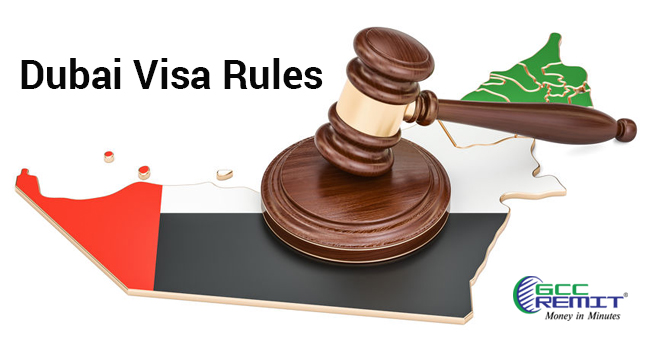UAE Visa Rules to Work in Dubai

Dubai, UAE on its journey into the 21st century, at a break-neck speed in every sector and to sustain, it has exponentially increased the demand for both skilled and unskilled workers, thus increasing the expat entries.
A residency visa is required for any foreign expats, who are not UAE nationals, to live and work in Dubai. This visa then allows the employees to obtain the work permit or labour card, issued by the Ministry of Labour. If the employee secures an employment before arriving, as it happens normally, the employers on behalf of the employee, must take up the responsibilities for visa processing to the relevant authorities. By law, the employers also need to bear the financial costs for the visa procurement.
Based on the type and duration of employment, the type of work permits also varies. A residency visa is valid for 3 years, must be granted to get a work permit or labour card. There are different types of residency visas.
For an approved work permit, the employer must apply on behalf of the employee. For free zone application, it must be granted before the entry of the employee in UAE. The decision of approval is based on the non-availability of any unemployed citizen for the relevant job.
Once the approval is received, an entry permit visa (Pink visa) is issued, which allows the applicant to enter UAE legally. It is valid for 2 months from the date of issuance. For a period of 30 days, extendable twice is allowed for the holder to remain in UAE.
Once the employee enters the country, the application process for labour card is started by the employer. For free zone employment, an ID card is issued. Both are valid for 2 years. Once entering the country, the applicant needs to complete all the formalities for residency visa within 60 days.
With the valid passport, entry permit and duly typed relevant form from any typing center, the employee needs to appear to the Emirates ID service center.
With all these done, the employee can apply for residence visa to the immigration authorities. Now the applicant needs to undergo a health check-up at any government medical entity, for a valid health certificate. Chest X-ray and blood test for certain communicable diseases like HIV/AIDS, leprosy, Hepatitis and tuberculosis are checked. If positive results come for any of these tests, it means denial of the visa and immediate deportation. The tests from outside the country are not acceptable. Relevant educational qualifications are also required for certain professions. This is authenticated by UAE embassy at your home country and by Ministry of Foreign Affairs in UAE.
With the medical fitness results and the other supporting documents, the employer can appear to the Department of Naturalization and Residency Dubai (DNRD) to stamp the visa on employee’s passport.
Visa requirements can be changed without updating the relevant website, so one should always check for the latest requirements to their respective consulates or embassies.










